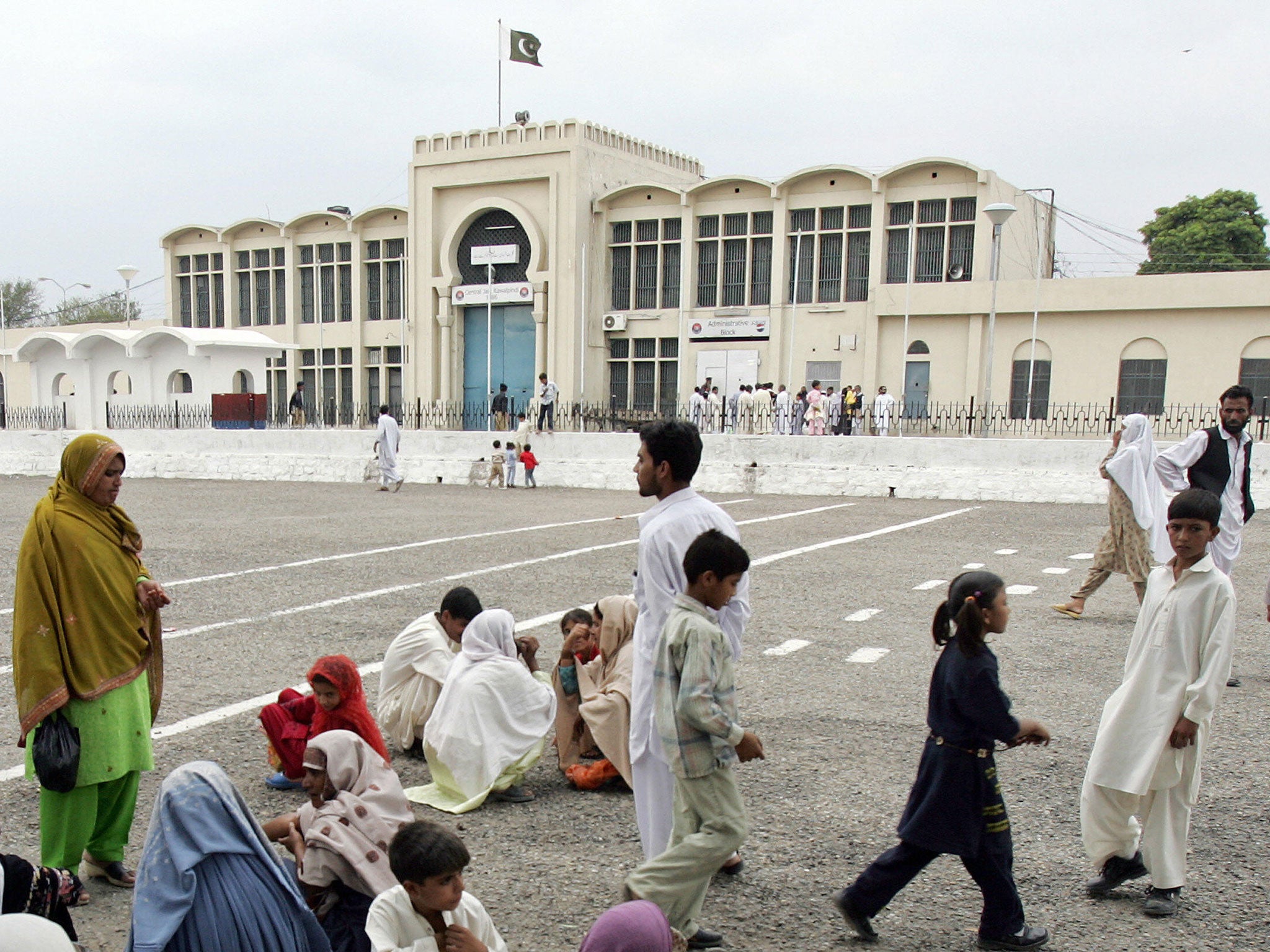Mohammad Asghar case: Overcrowded and violent, Adiala jail is now 70-year-old Briton’s home
Prison holds 60 terror suspects and eight ‘blasphemers’

The Adiala jail has long been home to some of Pakistan’s best-known prisoners. Former Prime Minister Yousaf Raza Gilani spent five years here, on politically slanted charges, during General Pervez Musharraf’s military rule.
Now, it is also where a 70-year-old Briton with a history of poor mental health is being held after being convicted of blasphemy, a crime that carries a maximum penalty of the death sentence.
Mohammad Asghar, who is from Edinburgh, is being held in small cell by himself, police officials at Adiala jail told The Independent during a visit to the jail on Tuesday.
“He is fine,” insisted Arshad Warraich, the deputy superintendent at the jail. “There is a cell to the right of him and a cell to the left of him. They can hear each other and talk to each other. During the day, they take walks together in the lawn in front.”
The Adiala jail lies in Rawalpindi, the garrison town famous for being the home of Pakistan’s army headquarters, along a quiet main road. It is fortified by high walls that have barbed wire curling across the top. Snipers lurk from turrets inside.
Throughout the day, blue vans screech into the prison gates carrying crammed prisoners who eventually limp out of the vehicle and shuffle into a queue of new arrivals. Their hands and feet are manacled.
The Independent was denied a meeting with Mr Asghar, who is accused of writing letters where he declared himself a prophet. “Only blood relatives and lawyers can meet with him,” said Mr Warraich.
At one of the gates, people slip out after a brief visit. “Today, they are allowing people to see those guilty of social crimes,” said a labourer who had come to visit a cousin. “Tomorrow, it’s the day for dangerous criminals. The day after, it’s the day for women.”
Prison visits are rowdy affairs. The visitors have to run through a series of bureaucratic hurdles before they are ushered into a hall. There are scores of prisoners and often a larger group of visitors divided by a thin grille, with people struggling to be heard over the din.
Mr Ashgar is one of six Britons imprisoned at Adiala. “The others are in here for drugs and murder,” said another police official. He is one of at least eight prisoners held on blasphemy charges.
Pakistan’s blasphemy laws, human rights groups say, are prejudicial and often used as an instrument of coercion. First introduced in British India, they have steadily acquired clauses that have often been used to persecute religious minorities.
The laws are considered especially dangerous because all that is required is an accusation. Fearing a backlash, the police take the accused into custody before caving into pressure and prosecuting them. Few judges dare declare the accused innocent.
While no one in Pakistan has been executed for blasphemy, two judges have been killed for acquitting those accused of blasphemy. Vigilantes have killed 30 other people on the mere suspicion of having blasphemed.
The jail officials declined to comment on Mr Asghar’s case. “It’s a very sensitive matter, and we have nothing to do with the case itself,” said Mr Warraich. “We are merely the custodians here. We do what the judicial authorities ask.”
Adiala is one of Pakistan’s largest jails, with over 4,000 prisoners being held there. It also has a history with controversies surrounding blasphemy. In 2012, a teenage girl named Rimsha Masih was held here, before a global outcry triggered her release.
One of the most high profile prisoners is Mumtaz Qadri, the police bodyguard who in 2011 killed Salmaan Taseer, the then governor of Punjab and the man he was supposed to be protecting. Qadri claimed that Mr Taseer had committed blasphemy by rising to the defence of a Christian woman convicted of spurious blasphemy charges.
Every few months, a shopkeeper across the road said, Qadri supporters gathers outside the jail to clamour for his release. They were last here on 4 January, the anniversary of Mr Taseer’s murder.
Each morning, the convicted prisoners are taken to a nearby factory. Over there, they are forced to weave carpets and carry out other tasks and menial work. In the jail’s courtyard, some prisoners dressed in dusty brown shalwar kameez pave a road.
No mobile phones can be used at the jail as powerful jammers are in operation, cutting out any signal. These are measures that police officials have been forced to take after discovering terrorist group leaders continued to orchestrate attacks from their cells.
There are some 60 terrorist suspects, including those still on trial and those convicted, being held at Adiala. Prison officials say that they struggle to cope with the numbers, in some cases housing 60 prisoners in a single room.
Pakistan’s prisons are also notoriously dangerous places. Both the prison officials and inmates are guilty of acts of grievous violence. Officials at Adiala concede that fights often break out, and prisoners have to be separated.
Join our commenting forum
Join thought-provoking conversations, follow other Independent readers and see their replies
0Comments